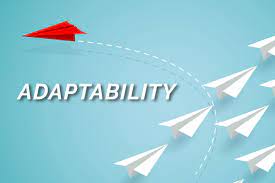Surviving The Corporate World

Corporate World
The corporate world, with its intricate web of industries, organizations, and professionals, is a dynamic and ever-evolving environment. It’s a realm where innovation and tradition intersect, where competition drives growth, and where individuals strive for success.
The corporate world represents a network of interconnected entities working towards common goals. From startups to multinational corporations, each entity contributes to the global economic fabric in its unique way. Industries ranging from technology to finance, healthcare to manufacturing, intertwine to form a dynamic ecosystem where innovation and disruption are constant companions.
The corporate world is a fascinating and complex tapestry where innovation, competition, and collaboration intersect. Navigating its intricacies requires a combination of skills, strategies, and a willingness to adapt to the ever-changing landscape. As professionals, the employees should remain agile, open to learning, and conscious of our impact on both our organizations and society as a whole.
In the dynamic and competitive landscape of the corporate world, the journey from entry-level positions to higher roles is akin to scaling a multifaceted mountain. This climb demands a combination of skills, strategies, and a commitment to continuous improvement.
Survival in Corporate World
In today’s fast-paced corporate environment, technological advancements are reshaping industries at an unprecedented rate. As an employee, adapting to these changes is not only crucial for professional growth but also for the success of the organization you’re a part of. The following points would help in navigating the challenges in the corporate world.

Curious Mindset: Embrace the idea that learning new skills is a continuous process. A growth mindset helps you see challenges as opportunities to expand your capabilities, rather than as obstacles.
Keep yourself informed about emerging technologies in your industry. Take advantage of online courses, workshops, webinars, and conferences to enhance your understanding of new tools and trends. Continuous learning not only improves your skills but also boosts your confidence in dealing with technology-related changes.
In the ever-changing tech landscape, what you learn today might become obsolete tomorrow. Commit to lifelong learning and remain adaptable to stay relevant. Seek out both formal and informal learning opportunities to acquire the skills needed for the evolving corporate environment.
Cross-functional Skills: Technological changes often blur the lines between traditional roles. Cultivate skills that complement your core expertise. For instance, if you’re in marketing, consider learning basic data analysis to make data-driven decisions.
Many organizations offer resources such as training programs, online platforms, and mentorship opportunities. Make use of these resources to upskill in areas aligned with the company’s technological direction. Don’t hesitate to ask your employer about available learning opportunities.
Connect with colleagues or friends who are comfortable with technology and learn from them. Collaborative learning can demystify complex concepts and provide insights that you might not have discovered on your own. Sharing experiences and solutions can make the adaptation process smoother.
Develop strong problem-solving skills to troubleshoot issues that arise while using new tools. Analyze the problem, seek help when needed, and find innovative solutions.
Communicate Your Problems: Communicate your concerns with your supervisors or peers. Seeking feedback and advice can provide clarity and different perspectives, leading to smoother adaptation. Technological changes can seem overwhelming, but they also present exciting opportunities. New technologies often streamline processes, increase efficiency, and open doors to innovative projects.
By fostering a growth mindset, committing to lifelong learning, and embracing new tools and platforms, you can not only keep up with technological changes but also position yourself as a proactive and indispensable member of your organization.
Demonstrate Reliability: Being dependable and consistent in your work builds trust and credibility. Meeting deadlines, delivering quality results, and taking ownership of your tasks showcase your reliability as an employee.
Don’t shy away from challenges; they are opportunities to prove your capabilities. Taking on challenging projects demonstrates your willingness to step outside your comfort zone. New technologies, market trends, and workplace dynamics emerge constantly.
Surviving means embracing change, developing a growth mindset, and continually learning to stay relevant. Pursue training, workshops, and certifications that enhance your skillset and make you a valuable asset to the company.

Adaptability: Adaptability is a survival skill for both individuals and corporations. Organizations that can swiftly respond to new circumstances by adjusting their strategies, processes, and structures position themselves for long-term success.
Such adaptability requires a culture that encourages innovation, experimentation, and continuous learning. Companies like Netflix and Amazon exemplify the power of adaptability. Netflix transformed from a DVD rental service to a global streaming powerhouse, while Amazon expanded beyond its e-commerce origins into cloud computing, entertainment, and logistics. Their ability to embrace change and diversify their offerings has been central to their continued growth.
Navigating Changes Successfully: Develop a clear vision for the desired state and a roadmap for how to get there. This roadmap should include specific action plans, timelines, and metrics to track progress. Successfully navigating change requires a strategic approach. Begin by understanding the landscape – assess the external factors and internal capabilities that influence the need for change.
As roles evolve and new skills become essential, offering training and upskilling opportunities can enhance the adaptability of the workforce. A culture that rewards innovation and risk-taking also encourages employees to embrace change rather than shy away from it.
Knowledge of when to speak and disagree with management: Big corporate companies encourage you to straight talk and to speak your mind. However, what they don’t tell you is that, if you do that too often, you might be labelled as a negative, skeptical cynic. One needs to be more strategic and data-based if you are going to disagree and deliver your message. It is not usually the words, rather it’s the tone that offends the people.

Attain Work-Life Balance: The boundaries between work and personal life continue to blur due to technological advancements and evolving work cultures, the importance of maintaining equilibrium between one’s career and personal well-being. A well-rested and emotionally balanced employee is more likely to be productive and efficient at work.
By ensuring time for relaxation and personal pursuits, employees return to work with renewed energy and focus. Neglecting personal well-being in pursuit of a successful career can lead to various health issues, both physical and mental. Prioritizing time for exercise, hobbies, and spending quality time with loved ones contributes to a healthier lifestyle.
Retention and Satisfaction: Companies that value work-life balance are often more attractive to potential employees and experience higher levels of employee retention. When employees feel that their personal lives are respected and supported, job satisfaction increases.
Embrace Change
Change is a constant in life, and nowhere is this more evident than in the realm of careers. In today’s rapidly evolving professional landscape, the ability to embrace change is not just a skill, but a vital mindset that can transform challenges into opportunities.
Whether it’s advancements in technology, shifts in market trends, or personal growth, change is an ever-present force that can either be feared or embraced. By adopting a proactive attitude and viewing change as an opportunity, individuals can not only navigate their careers successfully but also thrive in the face of uncertainty.

It is essential to view change as an opportunity for growth rather than a disruption. Change forces organizations to reassess their strategies, realign their goals, and innovate to stay relevant. Companies that embrace change proactively position themselves to outpace competitors, discover new markets, and build resilience against future uncertainties.
By embracing change as an integral part of business, fostering adaptability, and nurturing a culture that values innovation, organizations can not only survive but thrive in the face of a constantly evolving landscape. Just as a ship adjusts its sails to navigate changing winds, businesses must adjust their strategies to harness the winds of change to their advantage.
Tool for Skill Enhancement: When changes occur in the professional landscape, they often bring with them a need for new skills. Technological advancements, for instance, require individuals to stay updated with the latest tools and platforms.
Embracing these changes allows individuals to enhance their skill sets, making them more competitive and adaptable. By actively seeking out opportunities to learn and acquire new skills, individuals position themselves as valuable assets to their employers and industries.

Adapting to Industry Standards: Industries are not static; they evolve over time due to changes in consumer preferences, market demands, and technological breakthroughs. Those who resist change risk becoming obsolete. Embracing change enables professionals to stay ahead of the curve and remain relevant within their industries. By monitoring trends, attending industry events, and networking, individuals can position themselves as thought leaders and influencers in their respective fields.
Cultivate Resilience: Change is not always easy, and setbacks may occur. However, these setbacks can provide valuable lessons in resilience. Embracing change fosters an attitude of perseverance, enabling individuals to bounce back from challenges and setbacks stronger than before. Overcoming obstacles and adapting to change builds mental and emotional resilience, qualities that are highly valued in the professional world.
Charting Personal Growth: Facing new challenges and stepping out of one’s comfort zone encourages self-discovery and self-improvement. Embracing change as an opportunity allows individuals to break free from stagnant routines and explore new aspects of their potential. This personal growth not only benefits careers but also contributes to a fulfilling and enriched life overall.
Conclusion
Surviving and thriving in the corporate world requires a combination of skills, a growth mindset, and strategic planning. The journey from employee to a promoted position is a marathon, not a sprint. It demands dedication, patience, and a commitment to personal and professional development.
By mastering adaptability, communication, networking, and continuously honing your skills, you can navigate the complexities of the corporate landscape and rise to the challenges that come your way. Remember, success is not guaranteed overnight, but with determination, perseverance, and a proactive approach, you can ascend the corporate ladder and achieve the career growth you desire.




 (1 votes, average: 5.00 out of 5)
(1 votes, average: 5.00 out of 5)


